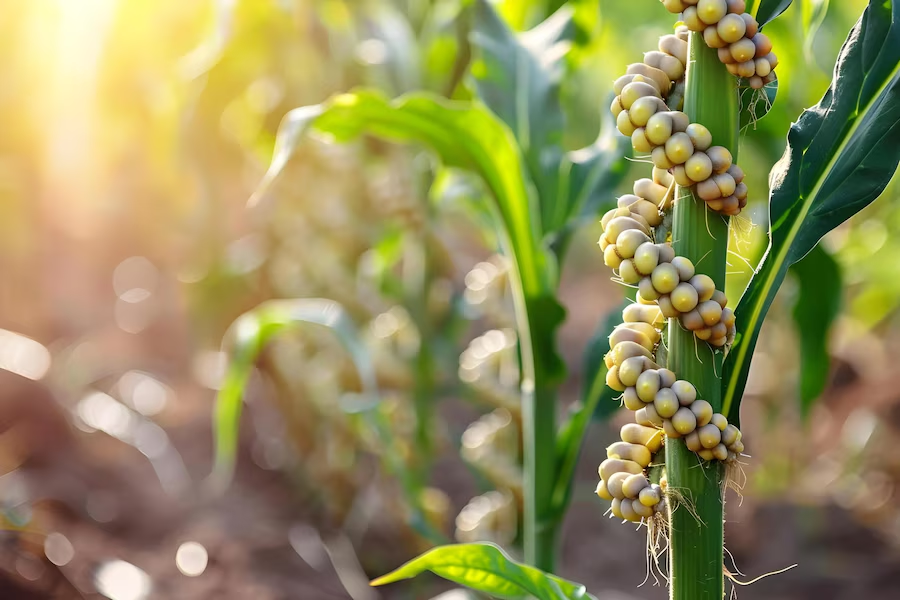Friday, 16 January 2026

In a move poised to recalibrate the trajectory of India’s agricultural biotechnology landscape, the Genetic Engineering Appraisal Committee (GEAC), under the aegis of the Ministry of Environment, Forest and Climate Change, has conferred formal approvals for confined field trials of genetically engineered maize, cotton, and pigeon pea. These authorizations, granted during the 155th meeting of GEAC , are the culmination of scientific deliberations and procedural rigor aligned with India’s bio-safety and regulatory frameworks.
Bayer CropScience India, headquartered in Gurugram, has received permission to conduct BRL-II confined field trials of two maize events—herbicide-tolerant NK603 and insect-resistant MON89034—across a constellation of State Agricultural Universities and ICAR institutions. These trials are sanctioned for the Kharif 2025 and Rabi 2025–26 seasons, with research sites spread across Ludhiana, Hyderabad, Anand, Udaipur, Gwalior, Rahuri, Parbhani, and other agro-climatic zones of strategic relevance.
Event NK603, containing the cp4epsps gene, is engineered for tolerance to glyphosate, allowing precise weed control with reduced environmental runoff. Meanwhile, MON89034, with cry1A105 and cry2Ab2 genes, is designed to confer resistance against lepidopteran pests, especially Helicoverpa armigera, a menace to India’s maize productivity. Each trial is meticulously crafted to examine weed suppression efficacy, expression levels of inserted proteins, soil ecosystem impact, agronomic differentiation from non-GM counterparts, and biodiversity interactions—ensuring a robust foundation for regulatory risk assessment.
In parallel, Rasi Seeds Pvt. Ltd., a leading domestic seed enterprise, has been granted approval to undertake BRL-I field trials for GE cotton hybrids incorporating the novel RIRC-304 event and a breeding stack with MON15985 (Bollgard II). The cotton hybrids are genetically endowed to resist the bollworm complex, including Pectinophora gossypiella and Spodoptera litura. Trials will be conducted across 17 locations, including Khandwa, Bathinda, Hisar, and Junagadh, with site-specific pest hotspots earmarked for accurate phenotype evaluation.
Notably, the ICAR-National Institute for Plant Biotechnology (NIPB) has secured permission for repeated confined trials of transgenic pigeon pea lines (Events 7, 12, 13, and 14), each expressing the cry2Aa gene for resistance to pod borer (Helicoverpa armigera), India’s most damaging pest in pulse crops. These trials, to be conducted under institutional containment at IARI, New Delhi, underscore the scientific community’s quest to integrate biotechnological resilience into staple legume crops.
It has been emphasized that these trials represent a cautious yet progressive step in fortifying India’s food systems through science. The approvals are contingent upon adherence to India’s Revised Guidelines for Transgenic Research (2017) and the 2008 Guidelines for Confined Field Trials, with additional safeguards including reproductive isolation, post-harvest monitoring, and biosecurity protocols to mitigate any unintended release.
The Central Compliance Committee (CCC) will be constituted to monitor all trial sites, ensuring data integrity and ecological stewardship. Furthermore, applicants are mandated to submit georeferenced maps, photographic documentation of trial sites at key growth stages, and comprehensive field trial reports within stipulated timelines.
While these developments mark a resurgence in India’s long-dormant transgenic crop pipeline, they also reaffirm the country’s regulatory insistence on environmental safety, public transparency, and scientific accountability. The GEAC’s decisions are not endorsements of commercial release, but rather an invitation to empirical scrutiny.
India, with its unique agro-ecological diversity, cannot afford to be either reckless or regressive. These trials, if rigorously monitored and transparently reported, may offer the data necessary to inform future decisions on biotechnological adoption in a manner that is both scientifically sound and socio-ecologically just.